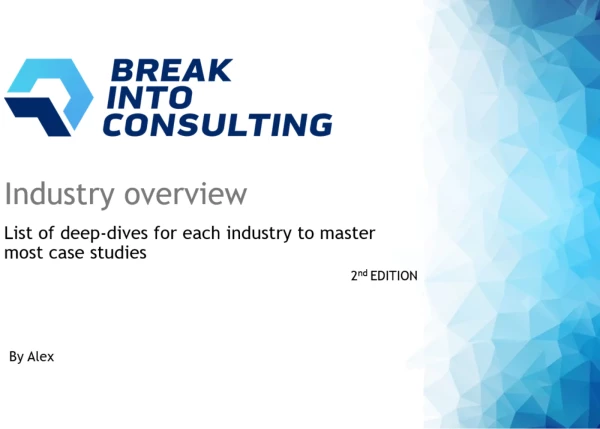Background: I am taking a career break and doing full-time job hunting. The recruiting pipeline has been slow and I only have a few interview invitations popping up once in a while. I am an experienced consultant and have done a total of 80-100 cases in the past.
Current situation: I feel that I do not enjoy casing now. It feels like a superficial exam. On the other hand, I know that if I don't prepare cases regularly to sharpen the case skill sets, I won't perform well in interviews. So, I want to find an ultimate pace to avoid burnout and be prepared when the opportunity comes.
Seeking advice: what would a suggested frequency of doing case interviews, (i) normal times without any interview scheduled, just to keep the “feeling” (ii) within 2 weeks of interviews? Note: I do 2-3 cases per week for the past few weeks.
Thank you!







One additional point about quantity vs quality -> I think quantity is great for two objectives: 1) Getting the basics and mechanics for a case interview quickly 2) Drilling down on a difficult weakness in your case skills (e.g. estimations) But, quality should be prioritized when you want to shoot for maintenance (assuming you have a good skill level) or gradual improvement (over + 6 months of preparation time)